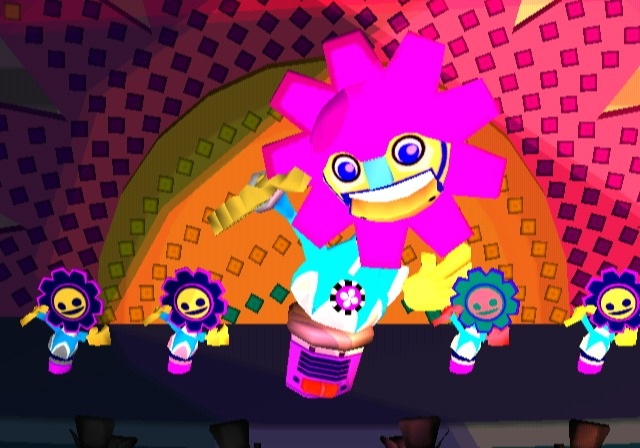What Happened To – ‘Chibi-Robo!’?
The Nintendo GameCube was an interesting console in a number of ways, not least because of how experimental developers could be. Sure, we had Mario and Zelda, but there were also a number of oddities, from horror games like Eternal Darkness to adorable god-simulator Doshin the Giant. Some were even expanded out to series. Some, like Pikmin, saw popular success. Some, like Chibi-Robo!, did not – so what happened to the miniature robot?
The first Chibi-Robo! game appeared on the GameCube back in 2005, developed by Bandai and Skip Ltd., and it’s a fun but strange game. You play as the title character, a 10cm tall robot bought the Sanderson family to improve their lives. In practice, this is an adventure game, in which you do chores and quests to earn ‘happy points’ to increase Chibi’s global ranking, and money to increase its abilities. However, every action uses up Chibi’s battery power, and so the player also needs to make sure the robot can recharge using the home’s electrical outlets.
Chibi-Robo! was a moderate success, and earned positive reviews for its story and characters
The player interacts with a set of interesting characters – the daughter Jenny’s toys come alive at night, so you can help a princess doll overcome her fears by dressing up as a ghost, or help save one of an army of eggs from the family dog. Against this quirkiness, however, there’s also some quite mature content. Tensions in the house are at breaking point – Mr Sanderson has been unemployed for some time, and his wife eventually threatens divorce. There are genuine stakes to the gameplay, and it hits some really adult beats that affected me a lot more on a recent playthrough.
Chibi-Robo! was a moderate success, and earned positive reviews for its story and characters (although critics did note the repetitive gameplay and camera issues). Development would start on a new game (initially envisaged as a rhythm game), but it did not start straight away due to personnel departures. A sequel, Park Patrol, followed in 2007 for the Nintendo DS, and this time the titular robot is tasked with revitalising a park. It expanded the open world of the original, effectively employing the touch screen and offering similarly fun characters, but it was criticised for gameplay and sound design issues.
Zip-Lash was such a failure, both commercially and critically, that it’s unlikely we’ll be seeing any more Chibi-Robo! games.
Park Patrol sold poorly in North America because of its limited release (Europe never saw it), but it did well in Japan. A third, Japan-exclusive game was released for the DS in 2009, seeing an adult Jenny turn to Chibi-Robo to help with their house and their living conditions. It introduced a new mechanic where the amount of power in the house was limited, and so the robot needed to incinerate trash to generate more, as well as ‘richies’, which buy new furniture to increase happiness points. It was positively received, but it was barely promoted and thus sold poorly.
There followed a hiatus of a few years. Chibi returned on the 3DS in 2013 with Photo Finder, which broke away from the usual mechanics to make the robot a museum curator. He does in-game tasks to make money to buy film, so the player can take real-world photos with the 3DS camera. Despite some fun characters and minigames, reaction was mild at best, and it would only get worse. 2015’s Zip Lash is a side-scroller, where Chibi uses his power cord as a weapon to hit enemies. According to a report, the desire was to broaden Chibi’s appeal, but it failed – the game was derided as boring, sluggish to control, repetitive, and underdeveloped. The only real consolation for fans was an adorable amiibo
Zip-Lash was such a failure, both commercially and critically, that it’s unlikely we’ll be seeing any more Chibi-Robo! games. Skip hasn’t made a game since 2015, and despite certain minor teases linked to Directs, there’s no suggestion Nintendo are likely to return to the series. It captured a small but vocal fanbase, and left a legacy of mainly underwhelming titles that failed to deliver on the original’s potential. Maybe the Switch would be the perfect place for the series’ brand of charming, quirky gameplay – fans like me certainly have their fingers crossed.

Comments